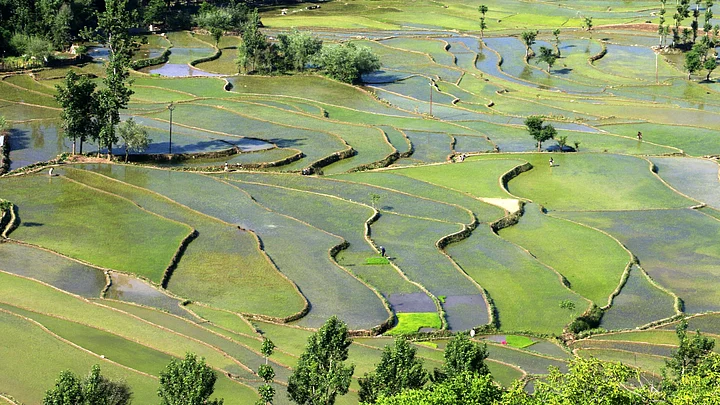Thaejkaad, which has cultural importance in the valley of Kashmir, means paddy transplantation. People across the valley consider this season as one ushering happiness and prosperity. For some, it may be a normal agricultural practice, but in Kashmir, it has cultural relevance.
A few decades ago, when people were reeling under the poverty line, the majority of the locals who couldn’t afford labourers sought their neighbours’ help. This is where the concept of the word “kaad” which combines with “thaej” to form “thaejkaad” meaning “to work together (mutually helping each other for sapling transplantation)”, came from.
The practice of sowing seeds of rice involves several steps. It begins with the preparation of “thaejwaan”, a local term for creating a nursery where rice seeds are sown, then, once the seeds turn to saplings, they are taken out in bundles and sown in the large fields.
For a long period, this was the traditional practice for the transplantation of rice saplings. However, with an unprecedented rise in the number of labourers coming from the states of Punjab and Bihar, things changed dramatically.
For Sameer Bhat, a local labourer, the thaejkaad season used to be of huge importance as during these days he would earn some money through labour work in rice fields. However, over the last few years, he believes, the work has been hijacked by outsiders who are ready to work at a low cost.
Since the COVID-19 outbreak there has been an intra-division ban imposed by the authorities which has allowed the locals to revive its cultural hegemony.
The agricultural work that Kashmiri people were outsourcing, is now being done by them.
Rukhsana, a Kashmir resident said “I was young when I saw my mother going for thaejkaad. But for years, I am witnessing the labourers doing the work. This year, since the pandemic has put everything on halt, the culture of thaejkaad has been revived.”
“The COVID-19 has provided an opportunity for us to revive our cultural practices. Why we need to depend on the workers who migrate and leave our valley in an unemployment mess,” she added.
